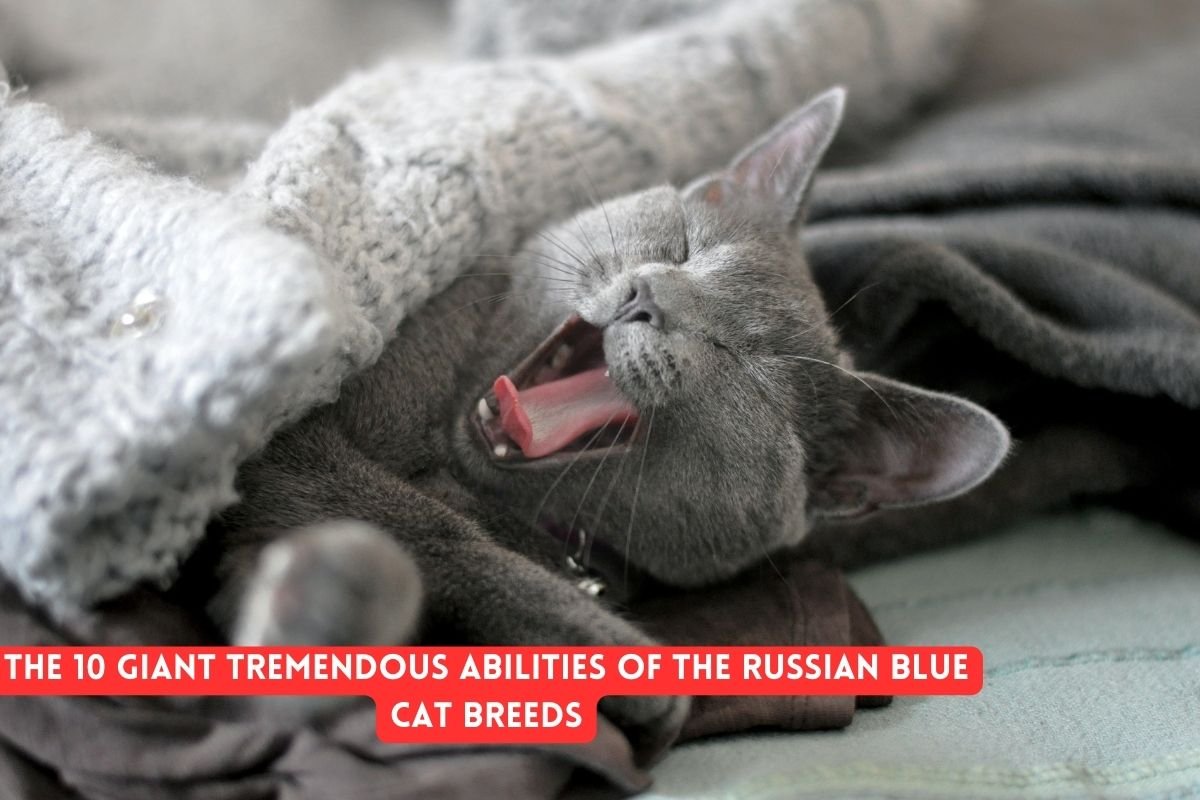Russian Blue cats are renowned for their distinctive appearance and charming personality. Originating from Russia, where they were prized for their hunting prowess, Russian Blues retain strong hunting instincts. They enjoy stalking and pouncing on prey, making them effective pest controllers in the home. In addition to their striking blue-gray coats and vivid green eyes, these feline companions possess a myriad of remarkable abilities that set them apart from other breeds.
Exceptional Intelligence
Russian Blues are highly intelligent creatures, capable of learning tricks and solving puzzles with ease. Their quick wit and problem-solving skills make them adept at adapting to new environments and routines.
Agile and Athletic
Despite their elegant appearance, Russian Blues are surprisingly agile and athletic. They excel in activities such as jumping, climbing, and even retrieving toys, making them excellent companions for interactive play.
Gentle Demeanor
Known for their gentle and affectionate nature, Russian Blues form strong bonds with their human companions. They thrive on attention and are often found curled up in their owner’s lap or by their side.
Hypoallergenic Qualities
Unlike many other cat breeds, Russian Blues produce fewer allergens, making them a suitable choice for individuals with allergies. Their short, dense fur and low dander levels contribute to their hypoallergenic qualities.
Excellent Hunters
Originating from Russia, where they were prized for their hunting prowess, Russian Blues retain strong hunting instincts. They enjoy stalking and pouncing on prey, making them effective pest controllers in the home.
Vocal Communication
Russian Blues are not particularly vocal compared to some other breeds, but they are known to communicate through soft chirps and trills. They use their melodious voices to express affection and seek attention from their owners.
Low Maintenance
With their sleek coats and fastidious grooming habits, Russian Blues require minimal grooming compared to long-haired breeds. Regular brushing and occasional nail trimming are usually sufficient to keep them looking their best.
Adaptability
Russian Blues are adaptable creatures that can thrive in various living situations, from apartments to spacious homes. They adjust well to changes in routine and are generally amenable to travel and new experiences.
Affectionate Companionship
Above all, Russian Blues are beloved for their affectionate and loyal companionship. They form deep bonds with their families and enjoy spending quality time with them, whether cuddling on the couch or playing games together.
Longevity
With proper care and nutrition, Russian Blues can live long and healthy lives, often reaching ages of 15 years or more. Their longevity allows them to provide years of love and companionship to their devoted owners.
Conclusion
In conclusion, the Russian Blue cat breed possesses an impressive array of abilities that make them truly special companions. From their intelligence and athleticism to their gentle demeanor and hypoallergenic qualities, these feline friends have captured the hearts of cat lovers around the world.
FAQs
Are Russian Blue cats good with children?
Yes, Russian Blues are generally good with children and enjoy playful interactions.
Do Russian Blues require a lot of exercise?
While they enjoy interactive play, Russian Blues do not require extensive exercise and are content with moderate activity levels.
Are Russian Blue cats prone to any health issues?
Russian Blues are generally healthy cats, but they may be predisposed to certain conditions such as dental problems and heart disease. Regular veterinary check-ups are recommended.
Do Russian Blues shed a lot of fur?
Russian Blues have minimal shedding compared to other breeds, but regular grooming can help minimize loose fur.
Are Russian Blue cats suitable for apartment living?
Yes, Russian Blues adapt well to apartment living and thrive in indoor environments with plenty of mental stimulation and companionship.
